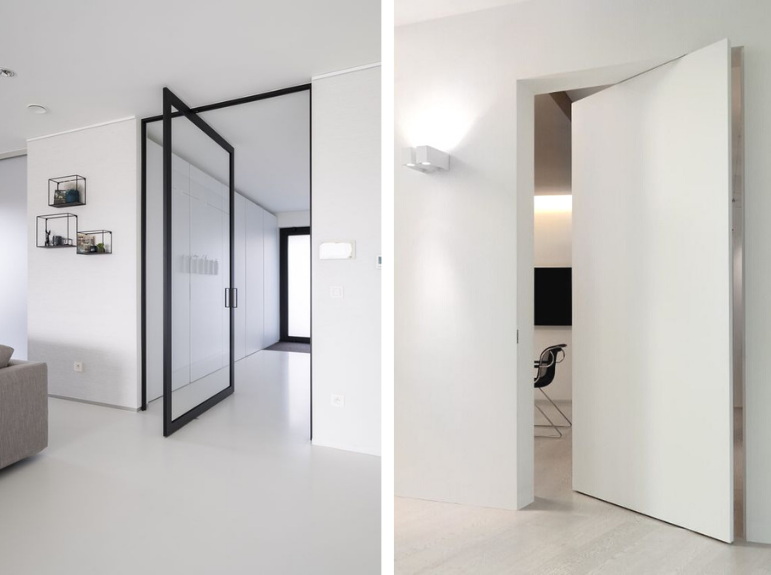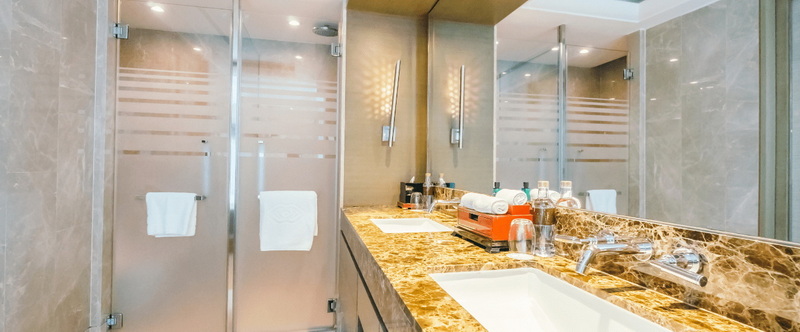English


Views: 222 Author: Tomorrow Publish Time: 2025-06-03 Origin: Site











Content Menu
● Overview of Aluminum Bathroom Door Manufacturers
● Leading Global Aluminum Bathroom Door Manufacturers
>> 2. Aluprof
● The Manufacturing Process of Aluminum Bathroom Doors
>> Raw Materials and Extrusion
>> Assembly
>> Advantages of the Manufacturing Process
● Features Offered by Top Aluminum Bathroom Door Manufacturers
● Why Choose Aluminum Bathroom Doors?
● FAQ
>> 1. What makes aluminum bathroom doors better than other materials?
>> 2. Which countries are the top exporters of aluminum bathroom doors?
>> 3. Can aluminum bathroom doors be customized?
>> 4. Are aluminum bathroom doors energy efficient?
>> 5. How can I find reliable aluminum bathroom door manufacturers?
Aluminum bathroom doors have become a preferred choice in modern construction and interior design due to their durability, resistance to moisture, and sleek appearance. The increasing demand for these doors has led to a competitive market with numerous manufacturers worldwide. This article offers an in-depth overview of the top aluminum bathroom door manufacturers, their manufacturing processes, product features, and what distinguishes them in the industry.

Aluminum bathroom door manufacturers specialize in creating doors that combine strength, corrosion resistance, and aesthetic appeal. Bathrooms require doors that can withstand humidity and water exposure without warping or rusting, making aluminum an ideal material. These manufacturers range from large multinational corporations to specialized regional companies, each bringing unique expertise and innovation to their products.
China is a major player in the aluminum bathroom door market, hosting numerous manufacturers that offer a diverse range of products. Chinese manufacturers provide competitive pricing and customization options, catering to global markets. They focus on sleek, contemporary designs that fit modern bathroom interiors. Their production capabilities include advanced extrusion, cutting, and assembly processes, ensuring quality and efficiency. For example,Guanmei Aluminum.
Aluprof is a leading European manufacturer known for its advanced aluminum systems used in windows, doors, and facades. Their aluminum bathroom doors are designed with energy efficiency and sustainability in mind. Aluprof uses recycled aluminum and cutting-edge extrusion technology to produce doors that are both environmentally friendly and highly durable. Their products are widely used in residential and commercial buildings, offering excellent insulation and modern design options.
India has several reputable aluminum bathroom door manufacturers known for their quality craftsmanship and cost-effectiveness. Companies such as K.D. Trading Company and Arccon Trading Private Limited offer a variety of aluminum bathroom doors with different finishes and thicknesses. Indian manufacturers emphasize durability and affordability, making them popular both domestically and internationally.
ExportHub lists more than 200 aluminum bathroom door companies worldwide, including manufacturers, exporters, and wholesalers. These suppliers come from countries such as China, Taiwan, Singapore, India, and the United States. ExportHub facilitates international trade by providing manufacturers with low minimum order quantities, flexible payment options, and fast shipping, helping businesses source quality aluminum bathroom doors efficiently.
Ajwindowdoor.com is a trusted manufacturer offering a wide range of aluminum doors, including bathroom doors. Their products are known for precision engineering, aesthetic appeal, and adaptability to various architectural styles. They provide custom solutions that meet specific client requirements, ensuring both functionality and design excellence.

Understanding how aluminum bathroom doors are made sheds light on the quality and innovation behind the top manufacturers.
The primary material used is aluminum, often sourced as billets made from high-quality alloys like 6063 or 6061. These alloys provide excellent mechanical properties and corrosion resistance. The billets are heated to temperatures between 400°C and 550°C to make them malleable before being extruded through dies that shape the aluminum into profiles for door frames and panels.
Once extruded, the aluminum profiles are cut to size using precision saws and CNC machines. Holes are drilled for screws, and grooves are milled to accommodate seals and hardware. The profiles are then treated with surface finishes such as anodizing or powder coating, enhancing corrosion resistance and aesthetic appeal.
The door assembly involves joining aluminum profiles with screws or welding, fitting tempered or laminated glass panels, and installing rollers, handles, locks, and weather seals. This ensures the door is watertight, functional, and visually appealing. Quality inspections follow to verify durability, smooth operation, and finish quality.
- Precision: CNC machining and automated cutting ensure tight tolerances and consistent quality.
- Customization: Manufacturers can produce doors in various sizes, colors, and finishes.
- Durability: Surface treatments protect against corrosion and wear.
- Sustainability: Use of recycled aluminum and eco-friendly coatings reduces environmental impact.
- Corrosion Resistance: Aluminum's natural oxide layer and additional coatings prevent rust, essential for bathroom environments.
- Lightweight Strength: Aluminum doors are sturdy yet easy to operate due to their light weight.
- Design Flexibility: Options include sliding, hinged, bifold, and frameless doors.
- Energy Efficiency: Insulated frames and double-glazed glass options improve thermal performance.
- Low Maintenance: Aluminum doors require minimal upkeep compared to wood or steel.
- Aesthetic Variety: Manufacturers offer powder coating, anodizing, and wood grain finishes to suit diverse interior styles.
Aluminum bathroom doors outperform traditional materials like wood or PVC in several ways:
- They resist moisture and humidity without warping or swelling.
- They offer a modern, sleek look that complements contemporary bathroom designs.
- Their longevity reduces replacement frequency and maintenance costs.
- Aluminum is recyclable, supporting sustainable building practices.
The aluminum bathroom door market is served by a variety of top manufacturers worldwide, including European leaders like Aluprof, numerous Chinese and Indian producers, and global suppliers listed on platforms such as ExportHub. These manufacturers employ sophisticated extrusion, fabrication, and assembly processes to deliver durable, customizable, and stylish doors. Aluminum bathroom doors provide an excellent balance of strength, aesthetics, and sustainability, making them a preferred choice in modern architecture. Selecting the right manufacturer depends on quality standards, design options, pricing, and delivery capabilities. As demand grows, these manufacturers continue to innovate, ensuring aluminum remains a top material for bathroom doors.

Aluminum bathroom doors are lightweight, corrosion-resistant, and durable. They do not warp or swell in humid environments and offer modern aesthetics with low maintenance requirements.
China, Taiwan, Singapore, India, and the United States are among the top exporters, with well-established manufacturing and export infrastructures.
Yes, manufacturers offer customization in size, color, finish, and design, allowing doors to fit various bathroom styles and functional needs.
Many aluminum bathroom doors incorporate insulation features and use double-glazed glass to enhance thermal performance and energy efficiency.
Platforms like ExportHub provide extensive listings of verified manufacturers worldwide. Researching established brands such as Aluprof and reputable regional suppliers also helps identify reliable partners.
Seven Requirements for External Doors And Windows of Passive Rooms
How Much Do You Know about The Design Standards for Aluminum Alloy Door And Window Dimensions?
Welding Vs Stainless Steel Fabrication: Understanding The Manufacturing Process Differences
Stainless Steel Fabrication Vs Powder Coated Steel: Durability And Cost Comparison
CNC Machining Vs Stainless Steel Fabrication: Pros And Cons for Industrial Use
Stainless Steel Fabrication Vs Carbon Steel Fabrication: Key Differences Explained
Stainless Steel Fabrication Vs Aluminum Fabrication: Which Is Right for Your Project?
Stainless Steel Grades 201 Vs 304: Cost Vs Performance Breakdown
316L Vs 316 Stainless Steel Grades: Which Is Better for Corrosion Resistance?
Comparing Austenitic Vs Martensitic Stainless Steel Grades: What You Need To Know?
